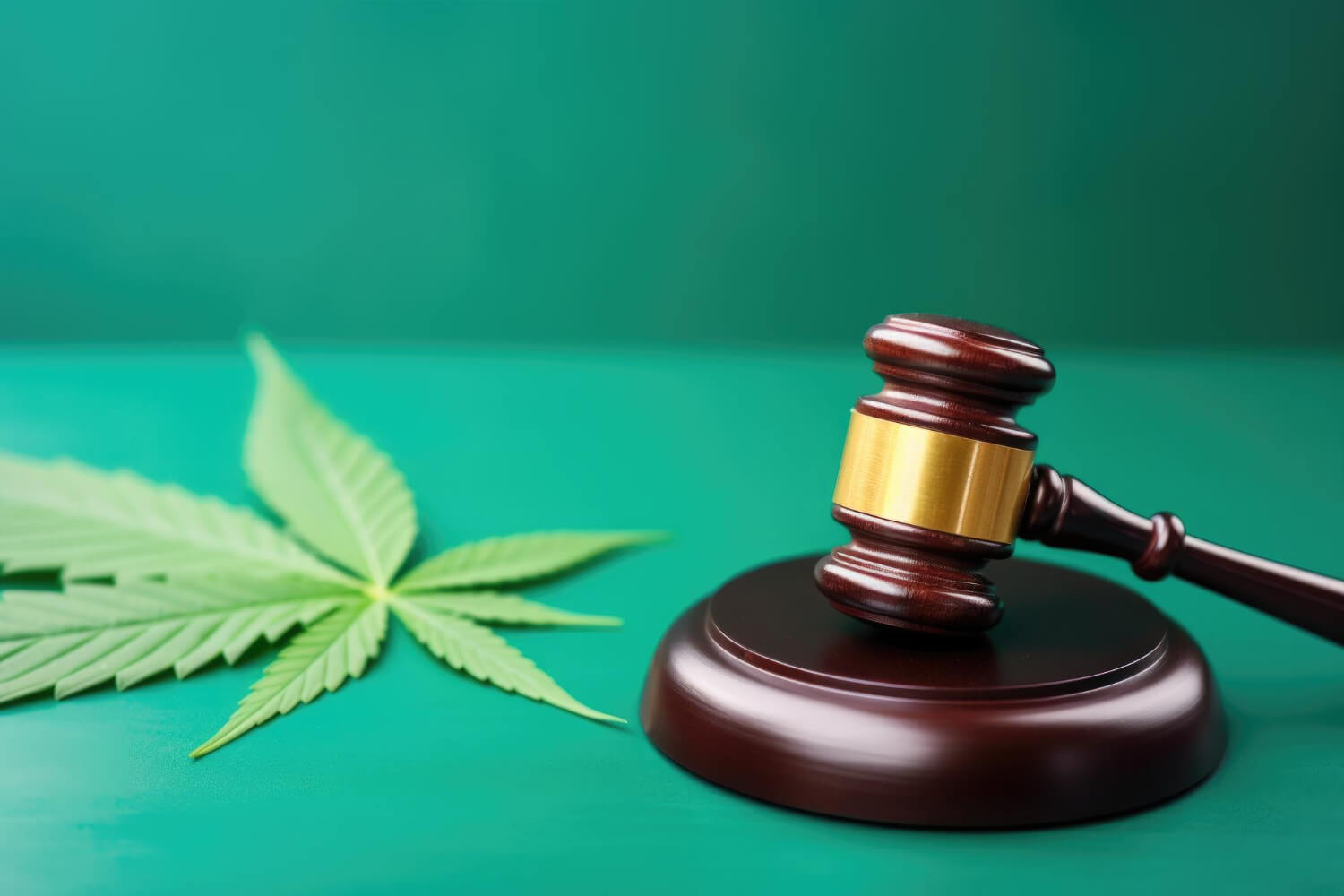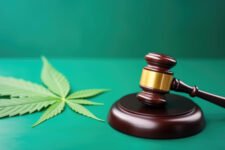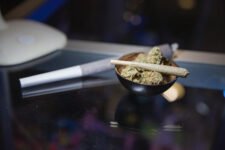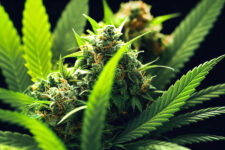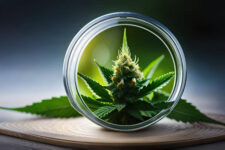The latest “hemp-derived ” psychoactive cannabinoid taking the scene by storm is tetrahydrocannabiphorol, or THCP for short. THCP was discovered by Italian scientists in 2019. And with suggestions it was potentially 30 times stronger than Delta-9 THC—interest in THCP skyrocketed. Naturally, the next question on everyone’s lips was, “Is THCP legal?”
Federal Legality of THCP
The federal legality of THCP in the United States is determined by the Agriculture Improvement Act of 2018, commonly referred to as the 2018 Farm Bill.
Under the 2018 Farm Bill, products derived from hemp plants were made legal under federal law, provided they contain less than 0.3% Delta-9 THC (the main psychoactive component of cannabis). It’s this law that has enabled the production and sale of Delta-8 THC, and other new cannabinoids, like THCP.
Because it can be isolated and extracted from the hemp plant, industry groups argue that THCP is legal under federal law. However, opponents to the new wave of hemp-derived cannabinoids (including the Drug Enforcement Agency), argue that these products are often chemically synthesized, in which case they are not covered by the 2018 Farm Bill.
Legal Precedent for Hemp-Derived Cannabinoids
While the debate is ongoing, it’s noteworthy that there is legal precedent around the legality of hemp-derived cannabinoids.
On May 19, 2022, Judge Fisher of the US Court of Appeals filed an opinion regarding a copyright and trademark infringement case involving Delta-8 THC.
The opinion made two clear statements about the legality of hemp-derived cannabinoids, (detailed below):
- “the plain and unambiguous text of the Farm Act compels the conclusion that Delta-8 THC products are lawful” (p. 2)
- “the only statutory metric for distinguishing controlled marijuana from legal hemp is the Delta-9 THC concentration level. In addition, the definition extends beyond just the plant to ‘all derivatives, extracts, [and] cannabinoids’.” (p. 14)
This legal opinion supports the view that not only are hemp-derived psychoactive cannabinoids legal, but such substances can also be chemically synthesized and still fit the exemption provided in the 2018 Farm Bill (as long as they contain less than 0.3% Delta-9 THC).
However, as we’ve seen with cannabis laws in general, the question of, “Is THCP legal?” rests on both federal and state law.
State Laws Regarding THCP
Despite a relatively clear indication that THCP is legal at the federal level, the law isn’t consistent when looking at individual states.
While some states have embraced THCP (and other hemp-derived cannabinoids), others have imposed restrictions or outright bans.
To get completely up-to-date and accurate information for individual states it’s always best to check local state laws. However, to give you an idea of whether THCP is legal in your area, we’ve compiled an overview of state laws regarding THCP below (drawn from the June 2023 Toward Normalized Cannabinoid Regulation report by the American Trade Association for Cannabis & Hemp).
States Where THCP Is Legal
In states where marijuana is legal and there are no additional laws banning hemp-derived psychoactive cannabinoids, it stands to reason that THCP is legal.
Such states include:
- Alabama
- Arkansas
- District of Columbia
- Florida
- Georgia
- Illinois
- Indiana
- Kansas
- Maine
- Massachusetts
- Missouri
- New England
- New Hampshire
- New Jersey
- New Mexico
- North Carolina
- Ohio
- Oklahoma
- Pennsylvania
- South Carolina
- Tennessee
- Texas
- West Virginia
- Wisconsin
- Wyoming.
States Where THCP Is Likely Banned
Because THCP is so new, it hasn’t yet been specifically banned by many states. However, some states have created legislation that bans all psychoactive cannabinoids, hemp-derived or otherwise.
In these states, it’s reasonable to assume that THCP, Delta-8 THC, Delta-10 THC, and any other psychoactive cannabinoids are illegal.
The list of states where THCP is likely banned includes:
- Alaska
- Arizona
- California
- Colorado
- Delaware
- Hawaii
- Idaho
- Iowa
- Mississippi
- Montana
- New York
- North Dakota
- Rhode Island
- Washington.
States Where Laws Are Unclear
As the popularity of Delta-8 THC spread, several states chose to delegate responsibility to government agencies for regulating hemp-derived cannabinoids, like THCP.
We’ve classified laws in these states as “unclear,” because most have not yet issued a ruling on THCP specifically.
In the states below, you’ll need to check local regulations to see if THCP is legal.
- Connecticut
- Delaware
- Kentucky
- Louisiana
- Maryland
- Michigan
- Minnesota
- Nevada
- Oregon
- South Dakota
- Utah
- Vermont
- Virginia.
The Role of the FDA and DEA in THCP Legality
With the introduction of the 2018 Farm Bill, the legal definition of hemp was amended to include derivatives, cannabinoids, and isomers, as follows:
“The term ‘‘hemp’’ means the plant Cannabis sativa L. and any part of that plant, including the seeds thereof and all derivatives, extracts, cannabinoids, isomers, acids, salts, and salts of isomers, whether growing or not, with a delta-9 tetrahydrocannabinol concentration of not more than 0.3 percent on a dry weight basis.”
This led to hemp being removed from the definition of marijuana in the Controlled Substances Act. In turn, it also removed hemp (and hemp-derived cannabinoids) from Drug Enforcement Agency (DEA) oversight.
The Food and Drug Administration (FDA) subsequently gained authority over hemp products intended for human consumption.
Following the changes, the FDA issued public health education material about hemp-derived cannabinoids. But as public debate on the topic intensified, the FDA conceded that the existing regulatory frameworks for foods and supplements are not suitable for hemp products, and called on Congress to assist.
At present, it would be fair to say there is a current lack of overall legal regulation for THCP and other hemp-derived cannabinoids. However, with the 2023 Farm Bill currently being debated, it’s possible we may see tighter regulation around psychoactive hemp-derived cannabinoids in the future.
Practical Implications of THCP Legality
Whatever state you live in, there are some practical implications of THCP legality that all consumers and hemp companies should be aware of.
Practical Implications for Consumers
- Given how closely related the two molecules are, THCP could trigger a positive drug test result for Delta-9 THC/Marijuana.
- Due to limited regulatory oversight and lab testing of THCP products, it’s difficult to know exactly what you are consuming when you take THCP. If the reports of contaminants and impurities in Delta-8 THC products are anything to go by, THCP purchased from unreliable suppliers may contain a host of additional potentially harmful, illegal, or unexpected substances.
- Like with marijuana or alcohol, you may be taking a legal risk performing certain activities, like driving or operating heavy machinery, while under the influence of THCP.
Hemp companies involved in THCP production, distribution, or retain should be aware:
- The legal status of THCP may change rapidly. This could come about through the DEA adjusting its stance, the FDA being given greater tools and resources, the 2023 Farm Bill outlawing hemp-derived cannabinoids, or something else.
- Human health impacts of THCP are unknown. It may turn out to have positive medicinal properties like marijuana. But until human trials are completed, there’s no way to be 100% sure of its safety.
Conclusion: Where Can You Legally Buy THC-P?
After being discovered in 2019, THCP is one of the newest psychoactive hemp-derived cannabinoids on the market.THCP is substantially more potent than Delta-9 THC, due to binding to the cannabinoid receptor up to 30 times more effectively. As a result, THCP is of great interest to consumers, hemp companies, researchers, and regulators alike.
For those wondering, “Is THCP legal?” The answer depends on which state you live in. Due to the 2018 Farm Bill, THCP is legal at a federal level, but state laws vary significantly.
In some states THCP is legal. In others, it is regulated. And certain states have effectively banned all psychoactive hemp-derived products, including THCP and Delta-8 THC.
We encourage all readers to stay updated on state laws regarding THCP. And for your health and safety, please only purchase from trusted, transparent sources.

